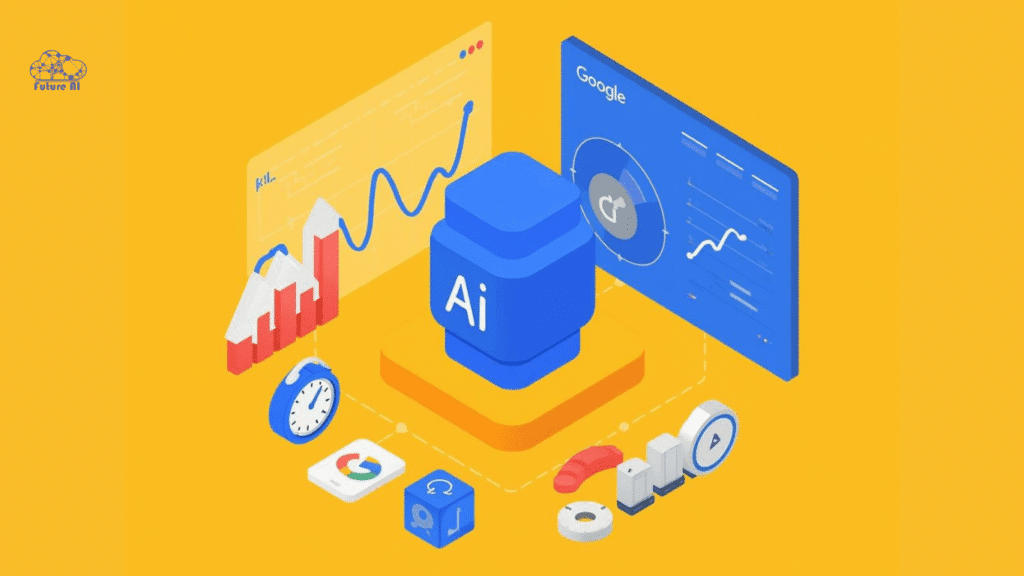Discover the best AI traffic tracking tools in 2025 to identify sources like ChatGPT, Perplexity, and AI bots in your analytics. Stay ahead with real insights.
AI is reshaping how people find and use websites. Tools like ChatGPT, Perplexity, Copilot, and Gemini now send visitors to websites but traditional analytics tools like Google Analytics don’t always show you where those AI-driven visits come from.
If you’ve ever wondered:
- “Which AI chatbot is sending me traffic?”
- “How can I see if my site appears in AI search results?”
- “Which content performs best with AI-generated visitors?”
Then this guide is for you.
In this article, you’ll discover the best tools to track AI traffic sources, how they work, and how to use them to improve your SEO, reach, and conversions.
What Is AI Traffic?
AI traffic means visitors who come to your website through AI-driven tools or assistants, not through traditional search engines like Google or Bing.

These tools include:
- ChatGPT and Copilot (AI assistants giving web-based answers)
- Perplexity AI (AI search engine with citations)
- You.com and Poe (AI-based browsing and summarization tools)
- Claude.ai, Gemini, and others
When a user clicks your site link from one of these AI tools, that’s AI referral traffic and it’s quickly becoming a key SEO metric.
Why Tracking AI Traffic Is So Important in 2025
In 2025, about 30-40% of organic discovery traffic will come from AI-powered interfaces rather than Google search pages.

Tracking this helps you:
- Identify which AI tools mention or link to your content.
- Measure AI-driven referral traffic for better marketing decisions.
- Optimize your content for AI visibility and ranking (AI SEO).
- Understand user behavior and conversions from AI visitors.
In short: if you don’t track AI traffic, you’re missing where your future audience is coming from.
Best Tools to Track AI Traffic Sources in 2025
Let’s break it down by category so you can pick the right tools for your goals.
1. AI Traffic Analytics Platforms
a. AIOSEO Insight
It is best for SEO and AI visibility tracking.
This WordPress plugin extension helps you see which AI engines display or recommend your content.
Key Features:
- AI citation tracker.
- SERP + AI ranking reports.
- Custom alerts for AI mentions.
Pro Tip:
Pair this with Google Search Console to monitor how AI and organic search traffic overlap.
2. Traditional Analytics with AI Traffic Detection
a. Google Analytics 4 (GA4) + Custom Filters
It is best for the businesses already using GA4.
As it helps with custom filters or UTMs, you can track traffic from Perplexity.ai, ChatGPT links, or Bing Copilot.
Setup Example:
Create a referral filter:
source = perplexity.ai OR chat.openai.com
Limitations:
GA4 doesn’t fully identify all AI bots yet, but it’s improving. Still useful when combined with AI-specific tools.
Learn exactly how to spot AI traffic in your GA4 reports. Start now!b. Plausible Analytics
It is best for privacy-focused tracking.
It is useful because the plausible now detects AI-based referrals like Perplexity or Copilot automatically.
Highlights:
- Lightweight, privacy-first design.
- Clear source tracking dashboard.
- AI-friendly reporting for marketers.
3. AI Content Mention & Visibility Tools
a. Semrush AI Visibility Tracker
It is best for SEO professionals and content creators.
Features:
- Tracks AI-generated content mentions.
- Shows backlinks or citations from AI bots.
- Analyzes ranking loss or gain from AI summaries.
Example:
If Perplexity cites your article, Semrush will show that mention as a new AI citation, helping you track brand exposure.
b. Similarweb AI Insights
It is best for competitor traffic analysis.
Use:
See which AI tools send traffic to your competitors and learn how they’re optimizing for those channels.
Bonus:
It includes audience overlap reports for AI vs. search engine visitors.
4. AI Search Tracking Tools
a. Perplexity Dashboard
It is best for Real-time AI search performance.
If you claim your site, you can view metrics like:
- Number of times your content appears in answers.
- User engagement (click-throughs).
- Topic ranking by query.
b. ChatGPT Browse Analytics (OpenAI Business Feature)
It is best for Businesses cited by ChatGPT responses.
Insight:
Shows impressions and engagement data when ChatGPT users visit your site from within the model’s browsing results.
Comparison Table: Best Tools for Tracking AI Traffic
| Tool Name | Best For | Key Feature | Type |
| Remaker AI | Dedicated AI traffic tracking | Tracks AI visits and mentions | Specialized |
| AIOSEO Insight | WordPress SEO integration | Detects AI citations | Plugin |
| Google Analytics 4 | Standard analytics + AI filters | Referral tracking | Analytics |
| Plausible Analytics | Privacy-based AI detection | Auto AI source tracking | Analytics |
| Semrush AI Tracker | AI mention tracking | SEO & backlink analysis | SEO Tool |
| Similarweb AI Insights | Competitor analysis | AI audience overlap | Analytics |
| Perplexity Dashboard | AI search visibility | Appearance & CTR data | AI Search Tool |
How to Choose the Right AI Traffic Tracking Tool
Here’s how to pick the best one based on your needs:
| Your Goal | Recommended Tool |
| Monitor AI-driven visits | Remaker AI or Plausible |
| SEO visibility tracking | Semrush AI Tracker |
| Analyze competitors | Similarweb AI Insights |
| Track referrals from ChatGPT | GA4 + Remaker AI |
| Privacy-first analytics | Plausible Analytics |
Pro Tips for Tracking AI Traffic Efficiently
- Add UTM tags to your content shared with AI tools.
- Monitor referral sources weekly and trends change fast.
- Check AI mentions using Semrush or Ahrefs.
- Compare conversion rates between AI traffic and organic SEO.
- Update your sitemap and structured data to help AI understand your site.
If We See How The Real World Used This
A tech blog noticed a 20% traffic jump that wasn’t showing in Google Analytics.
After using AI traffic analysis tools, they discovered that Perplexity and ChatGPT were citing their guides.
By optimizing for AI summaries (clear answers, structured headers), they grew AI-driven visits by 58% in 3 months.
See how Google’s SGE is changing SEO and what you must do next.FAQ: Tracking AI Traffic in 2025
Q1. Can Google Analytics track AI traffic automatically?
Not completely but with referral filters and Remaker AI integration, you can detect most sources.
Q2. Which AI tools send the most traffic?
Currently: ChatGPT, Perplexity, and Copilot.
Q3. Is AI traffic valuable?
Yes, AI visitors often have high intent because they click directly from trusted AI recommendations.
Q4. Do I need a paid tool for AI search traffic?
Free options (like Plausible + GA4 filters) work well for small sites, but paid AI tools give deeper visibility and mention tracking.
Conclusion: Stay Ahead of the AI Traffic Wave
AI is rewriting the rules of SEO and website discovery.
By using tools like Remaker AI, Semrush, and GA4, you can clearly see how AI affects your web presence and make smarter content decisions.
The earlier you start tracking AI traffic, the more competitive advantage you’ll have.
Start now, your future audience is already coming from AI tools.
Want to stay updated on the latest AI SEO tools and trends?
Subscribe and never miss a step in the AI traffic revolution.